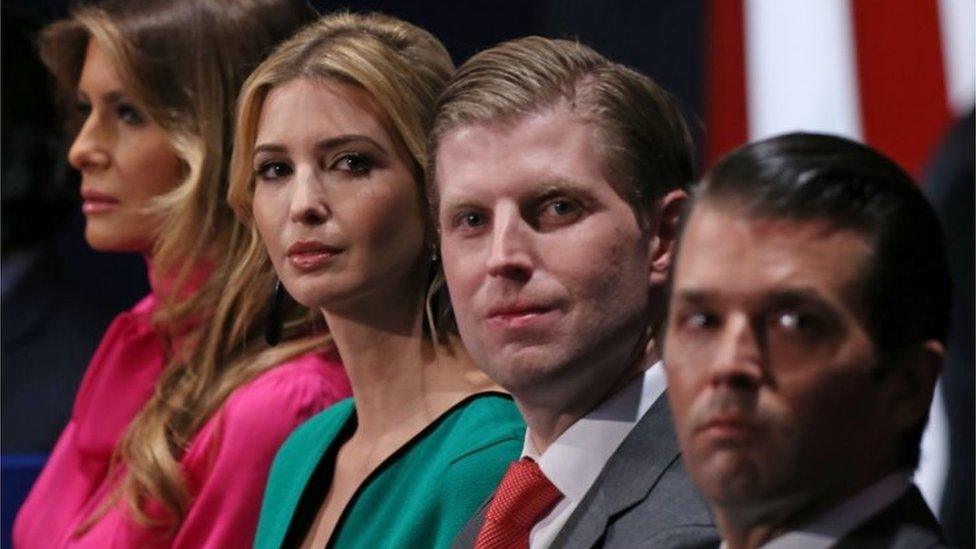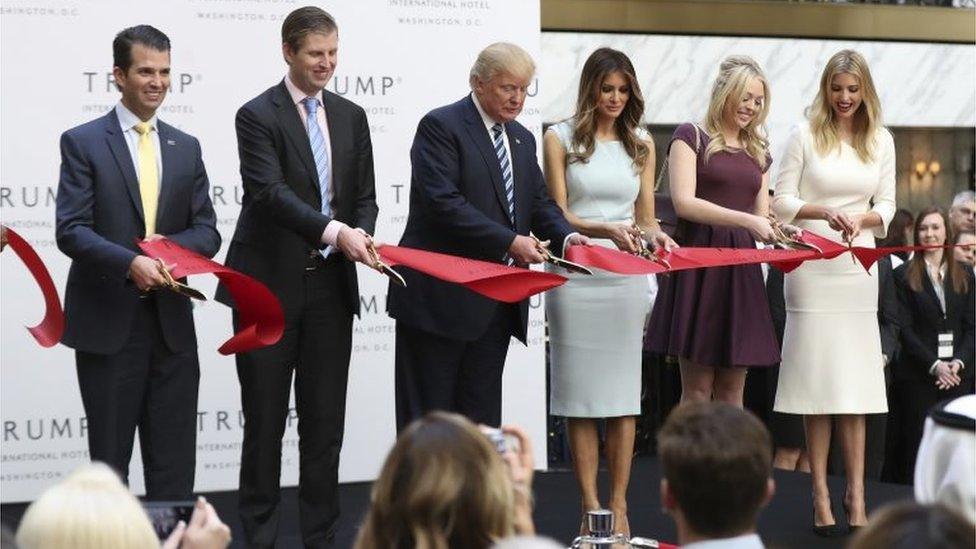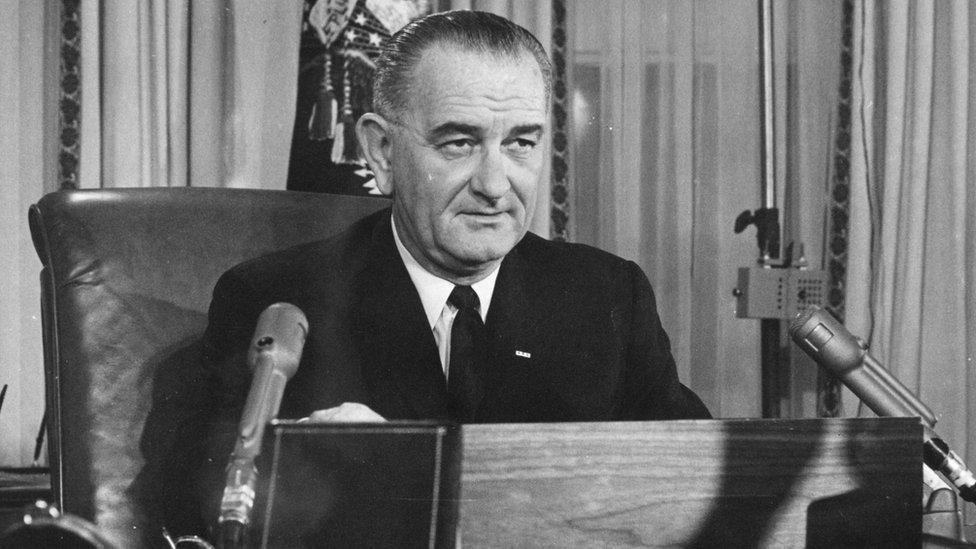Donald Trump’s children: Will they be his advisers?
- Published

Some of Donald Trump's relatives have played key roles in his victorious campaign and are now part of his team preparing for office. Will they be in his government and is that legal?
The president-elect's transition team has denied reports that he sought security clearance for his children, according to an official. Mr Trump's children have not filled out required paperwork to obtain top security clearance, the official said.
Ivanka, Eric and Donald Trump Jr would have to be designated as national security advisers to receive access.
However, it remains unclear whether Mr Trump's children will receive official roles in their father's administration.

Will Trump's children serve in his government?
The security clearance report follows Mr Trump's announcement last week that his three children and Ivanka Trump's husband, Jared Kushner, would serve on his presidential transition team.
Ivanka Trump and her husband served as key advisers to Mr Trump throughout his campaign.
The appointments underscored concerns over potential conflicts once his children take the helm of his sprawling business empire.

Donald Jr (L), Eric, Donald, Melania, Tiffany and Ivanka cut the ribbon during the grand opening of Washington hotel
Mr Trump has insisted he would hand control of the Trump Organization to his three eldest children before moving into the White House.
When Ivanka Trump was asked whether she would hold a formal role in her father's administration during a 60 Minutes interview aired on Sunday, she demurred.
"No," she said. "I'm going to be a daughter. But I've said throughout the campaign that I am very passionate about certain issues. And that I want to fight for them."
Trump ally and former New York Mayor Rudy Giuliani also told CNN on Sunday that the president-elect's children would not be advisers.

Is there a nepotism rule outlawing employing relatives?
Mr Trump may have flexibility in appointing family members to his transition team, but he is more limited in selecting his administration.
According to an anti-nepotism law, US code 5 USC 3110, external, Mr Trump may not "appoint, employ, advance, or advocate for" relatives in "the agency in which he is serving or over which he exercises jurisdiction or control".
However, he could work through loopholes in order to employ one of his family members in his administration, the Washington Post reported., external For example, Mr Trump could appoint one of his children if they declined to take a salary, a legal grey area.
The president-elect could also influence other branches of government to hire one of his children, keeping them close to him in Washington.
Trump to trust in daughter power

Have other US presidents hired relatives or children?
The anti-nepotism law prohibiting a president from appointing a family member was enacted in 1967.
Before the statute passed, President John F Kennedy famously appointed his brother Robert Kennedy as US Attorney General.
Robert Kennedy, however, still had to be approved in Senate confirmation hearings.
President Bill Clinton faced scrutiny when he appointed his wife and then-First Lady Hillary Clinton as the head of a health reform task force in 1993.
Critics invoked the anti-nepotism law when they sued to block the task force, but the DC Circuit Court of Appeals upheld her appointment.

Can a president run a business and be president?
There is no conflict of interest law preventing Mr Trump from presiding over the Trump Organization while in office, but US presidents have historically taken steps to avoid any appearance of impropriety.
Previous presidents, from Lyndon B Johnson on, have avoided conflict of interest by placing their business interests in a blind trust.
This means that the president gives control of his (or her) money to independent trustees.

Lyndon B Johnson was the first US president to set up a blind trust to handle his affairs
In LBJ's case, as BBC's Robert Plummer notes, he set one up in 1963 after assuming the presidency in the wake of JFK's assassination.
President Johnson and his wife, Lady Bird, owned a TV station, KTBC, in Austin, Texas, and wanted to avoid regulatory problems without having to sell it.
In 1978, the Ethics in Government Act formalised the rules on blind trusts, but left them entirely voluntary as far as presidents are concerned.
Mr Trump is not the first US presidential or vice-presidential candidate to face concerns over his wealth.
Vice President Dick Cheney was sharply criticised for the $34m (£27m) in stock options he received from US oil services company Halliburton before becoming George W Bush's running mate in 2000.
Republican presidential candidate Mitt Romney and Mr Trump's Democratic rival Hillary Clinton also held large assets in real estate, stocks, mutual funds and trusts, when they ran for office.
But unlike previous candidates, Mr Trump's fortune is largely based on his personal brand.

So can his children run his business while he is president?
Mr Trump has repeatedly said he would hand over the company to his three eldest children.
But releasing control of his money to Ivanka, Eric and Donald Jr would not count as a blind trust, as Mr Trump has referred to it, since he would be in contact with the people running it and have direct knowledge of his assets.
He would then remain vulnerable to allegations that his political decisions were shaped to benefit his business assets.
And if one or all three of his eldest children are named as high level, informal advisers to gain security clearance, Mr Trump's conflict of interest would be unprecedented.